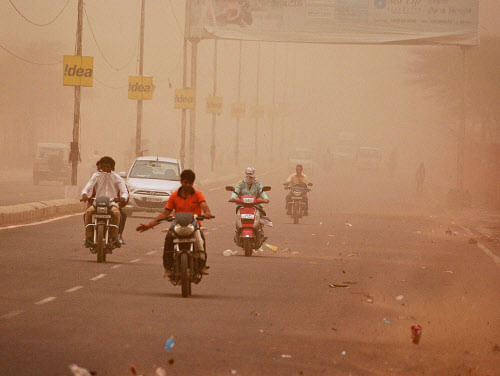
Rising pollution levels in the City over a period have led to an increase in the number of health ailments among citizens.
Skin diseases, allergies, respiratory problems, etc, are on the rise.
Fine dust particles are potential triggers for skin diseases, say dermatologists.
Speaking with Deccan Herald, Dr Leelavathy, HoD, Dermatology, Bowring and Lady Curzon Hospital, on the eve of World Environment Day, said that with the depleting ozone layer, sun burns are quite commonly reported among the people.
Those travelling often are at higher risk of suffering from clogged skin pores. Due to exposure to pollution, cases related to pimples and eczemas are on the rise, Dr Leelavathy explained.
Possibilities of scalp-related problems like dandruff and itching increased with suspended dust particles. Hence, it is important to take good care of hair and scalp.
The same can also lead to critical conditions like skin cancer if ignored in the long run, the specialist said.
Extra care is advised for those with sensitive skin.
Sun-screens can be a good option. However, they cannot be an ideal solution to all skin-related conditions, she opined.
Use of hard soaps and shampoos will only worsen the condition, Dr Leelavathy said, adding that it was important to use a moisturiser after every wash.
“It is not recommended to oil the hair and let it down through the day,” she said.
Ineffective masks
Most of the two-wheeler riders use cotton scarfs and masks in the belief that they could be effective protection against the damaging sun rays. However, doctors don’t agree.
Dr Honey Ashok, senior consultant, ENT, Apollo Hospital, said that scarfs and masks might not be an ideal solution to problems.
“The use of these items lead to running nose, sinusitis, headache and breathlessness.
Internal growth in the nose called nose-polyt is also common among such people, she said.
Honey said that children were more prone to such problems and over 50 per cent of them also reported allergies.
Since such cases are reported every day in large numbers, they can directly affect our lifestyle, she added.
Dr Satish, chief pulmonologist, Vikram Hospital, said masks were not a practical solution.